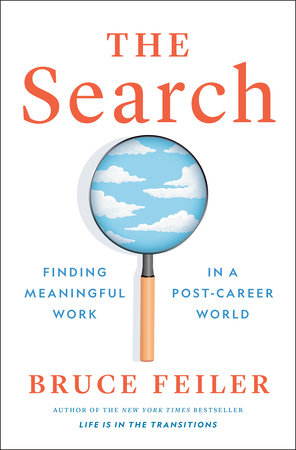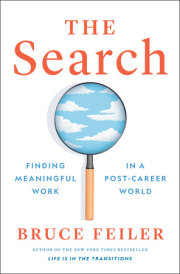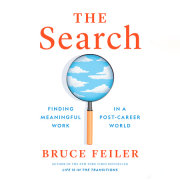The Story of Your WorkThis book is designed to help you write your own story about work. It grows out of an unprecedented shift in how we think about what we do. More people are taking control of their work lives.
In recent years, for the first time in history, the number of Americans quitting their jobs reached a million people a week. Buoyed by the tightest talent market in eighty years, a million marketing directors and money managers, truck drivers and tech designers, artists and acupuncturists decided they weren’t doing what they wanted to be doing and opted to do something else. Many of these people did what their parents and grandparents would never have dreamed of doing:walk away from one job without have another job lined up.
Most of these decisions have been attributed to a supposed surge in resignations set off by the pandemic. But that narrative is grossly misleading. What economists call the
quit rate, the number of people who quit their jobs every month, has risen every year except one for two decades. After reaching a low of a million and a half people following the recession in 2009, the number of monthly quitters rose to two million in 2012, three million in 2018, a record three and a half million in 2019, four million in 2020, and then four and a half million in 2022.
A third of the workforce now leaves their jobs every year. Another third redesigns the jobs they’re in. They assert more influence, work more remotely, dial back hours to spend more time with family, dial up flexibility to pursue side work that brings them purpose.
Even those who lose their jobs say they don’t necessarily want to return to the grind; many would prefer more variable arrangements,even if that means sacrificing some conventional metrics of achievement.
Clearly something is happening in work that’s never happened before in work.
This book is about that something. It’s about a once‑in‑a‑generation rethinking of the rules of success. A rebalancing of power away from employers and toward employees. A shift from a time when most of us were forced to bend to someone else’s narrative to a time when more of us assert the freedom to write our own narrative. Fewer people search merely for work these days. More people search for work with meaning.We’re moving from a means-based economy to a meaning-based economy.
And this book is about learning to take advantage of this opening to get the happiness you deserve and the meaning you crave. The first step in that process: revisiting the script you inherited about work. For generations, Americans have been fed a narrow definition of success.That script was passed down by our parents, encouraged by our neighbors,reinforced by our culture. These days, more of us are turning our backs on that playbook. We’re questioning its values and challenging its assumptions. We’re flipping that script and replacing it with. . .
Well, we’re not sure, exactly.
Turns out, we’re much better at rejecting scripts than we are at writing them.
Many of us feel lost, adrift, frustrated, confused.
That leads to the second step on this journey: rediscovering your own scripture of work. A huge flaw in the myth of success we’ve been sold is that it gazed too exclusively and elevated too reflexively on only one type of hero and one measure of achievement. The only way to be successful is to always push ahead.
March forward! Reach higher! Get more!This advice is wrongheaded at best and dangerous at worst.
The most important step to being successful today is not to look forward.
It’s to look backward. Peer inward. Dig deep.
When you do, what you discover is that each of us is grappling with our own internal definition of success. We have a roiling assortment of homilies, parables, truisms, and beliefs, some imprinted on us by our families and inscribed on us by our surroundings, but more chosen by us from our role models and forged by us from our wounds. The best way to understand these stories is as a kind of scripture, a sacred treasure that each of us tries to live up to even as we try to break free from it.
This book is about learning to identify that scripture. Tapping into it at the defining moments in your life so that you don’t waste your time chasing someone else’s dream.
You chase your own dream.
That leads to the final step on this journey: taking control of your own work narrative.
The last few years have seen a renaissance of storytelling. Through the confluence of narrative psychology, which showed that our internal narratives lie at the heart of our identity, and cognitive neuroscience,which revealed that our brains are wired to process information through narrative, we’ve come to accept that stories define many aspects of our lives. But for whatever reason, our work lives have been largely left out of that conversation.
The time has come to correct that imbalance. In these pages, I explore the idea that each of us has what I call a work story, an ongoing,unspoken narrative that we’re constantly revisiting and revising in response to changes in our jobs, our families, and our lives. The freedom to rethink that story comes at a time when our work lives are more volatile than ever before. We face a never-endingbarrage ofinterruptions—some voluntary, others involuntary; some unique to us,others shared by the entire planet; some that grow out of changes in our workplace, others that grow out of changes in our mindsets. I call these moments
workquakes. And as I’ll lay out, at any given moment, eighty million Americans are going through one.
I also offer one more thing: a set of questions to ask when you’re in a workquake that maximizes the chance you get the outcome you want. As each of us goes through this process of rewriting our individual story of success, we also participate in something that’s urgently overdue:rewriting our collective story of success. This new story is more complex—and more elastic—than the one we’ve been telling. It’s more colorful—and more welcoming.
It doesn’t undermine the American Dream.
It opens the door to myriad American Dreams.
This book is about how I accidentally discovered these new variations on how to think about success. And how we can achieve the version that’s right for us.
Copyright © 2023 by Bruce Feiler. All rights reserved. No part of this excerpt may be reproduced or reprinted without permission in writing from the publisher.












